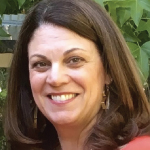Why We Need Racial Literacy Now More Than Ever

Given the current national landscape, it has become painfully obvious that those of us in schools need to double our efforts to teach racial literacy (Stevenson, 2014). Recently, I was working with 4/5th graders who are part of a racial affinity group program we coordinate in Portland, OR (for more about these groups, see So What Do White 4th Graders Have to Say About Race?). This past week, we were doing “race questions” where the children get to ask any question they have about race and racial identity. As I collected their notecards and began reading through their questions, I came across this one: “Why do white people dress up as Black people?” I could feel nervousness move through my body as I considered where to begin. To buy some thinking time, I asked for a bit more information: “What an interesting question! Can you tell me a little more?” Well, the floodgates opened:
“Elizabeth, I heard about this governor who put black paint on his face so he would look Black. I think he was making fun of Black people.”
“Yeah, and he dressed up as Michael Jackson. But that was for a party. Is that OK?
“That’s not OK. That’s racist.”
“But how can he be a leader if he’s racist?”
“Would it ever be OK to dress up as a Black person if you were doing it to honor someone, like Dr. King?
“But is it racist if he didn’t know better? Did he know?”
Oh my. We were off and running.
I started by asking the students the difference between appreciating and respecting a culture and the idea of just taking someone else’s culture as your own—without knowing too much about that culture or minimizing the importance of certain cultural traditions and values. I wrote the word “appropriation” and “appreciation” on the board and we made two columns, thinking about where certain actions would fall. For example, we talked about how some white kids will greet Black kids differently than white kids, pretending to sound like a hip hop star with Black kids because it makes them feel cool. But it seems like the white kids are acting, maybe even pretending to be Black, which the group thought was not actually demonstrating appreciation for hip hop music. I then gave them a quick description of when blackface started and how. They were rapt and wanted to know more. I showed a few clips from the film Ethnic Notions, an amazing documentary film by Marlon Riggs that traces the history of anti-Black racism via popular culture and media stereotypes from the Civil War through both World Wars. I also showed them part of a news story from PBS that connected current events to this long history of demeaning Black people.
I’m always impressed by how young people can navigate racial terrain in a way that adults seem unable to do. They can clearly see the forest for the trees and ask why anyone would think that blackface was OK given the history we had just learned. One of my favorite comments was, “But, Elizabeth, I don’t get it. If this started like almost 200 years ago, why would someone STILL think it was OK to do this after they had been told it was bad?” And then one student concluded, “I think blackface makes white people look bad.”
My thoughts exactly. But then I said, “Well, maybe they didn’t learn about all this when they were kids.”
Gasps around the circle.
So, the good news is we can teach our way out of this. But that means teachers have to be ready, willing, and able to wade in to talking about a concept with such history as well as current implications. And if this was not a part of our own education, we can sometimes feel paralyzed. How do we know if we are ready? And how do we make sure we are not doing more harm than good?
Equity as Excellence started four years ago in response to these kinds of questions and more. How do we swim against the tide of a culture that has historically been so incompetent at talking about issues related to race and identity? How do we make sure children of color do not have to educate us about race and how it impacts their school experience? How do we ensure that we do not have another generation of white students who, at best, feel bad about being white, and who, at worst, promote racial stereotypes and prejudice? Focusing our effort on professional skill development and curriculum implementation, participants can map out a plan of action based on their own sphere of influence in their school. So, a fourth-grade teacher can think about their own implicit bias and how it may play out in the classroom, and then write up a lesson on stereotype threat. A school leader can reflect on how their own racial and/or gender identity may impact the way they give feedback to their colleagues and develop an action plan for how to address this. A trustee can examine what equity literacy looks like from a governance perspective and consider how this might be shared with the board.
Finally, this kind of skill development gets us past the notion that “diversity work” is about our character or morality when it’s actually about our competence. Everyone can learn how to make our schools more equitable; it’s a question of will as opposed to ability. Granted, explaining the history and effects of blackface can feel overwhelming. The other questions I got were relatively easy to answer: Why do we have different colored skin? Where did the term “white” come from? Why are most storybook characters white? What I realized is that these children are curious, and ready to engage. They just need the space and time to think and talk about these issues. It is imperative then that teachers and school leaders require their own space and time for this as well, and that is why I hope you will consider joining us at Equity as Excellence this July.
Resources: Stevenson, H.C. (2014). Promoting Racial Literacy in Schools: Differences that Make a Difference. New York: Teachers College Press.

Elizabeth Denevi is the Associate Director for Mid West Educational Collaborative, a non-profit agency that works with schools nationally to increase equity, promote diversity pedagogy, and implement strategic processes for growth and development. Previously, she served as Director of Studies & Professional Development at Latin School of Chicago. In this position, Elizabeth was responsible for the stewardship and integration of curriculum from pre-kindergarten through grade 12, as well as for the oversight and coordination of professional development and evaluation for all faculty.
